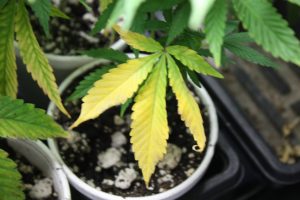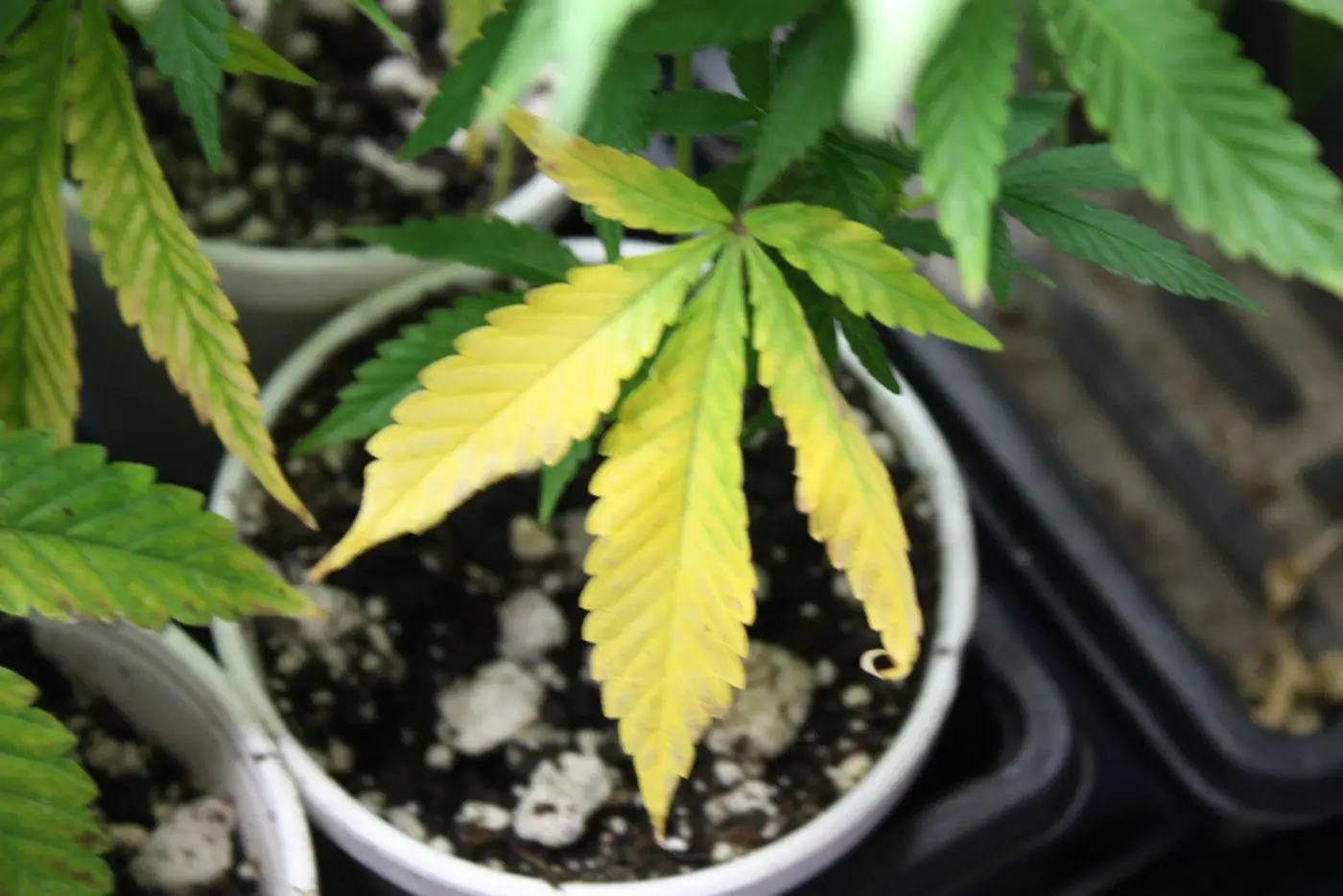Getting cannabis plants with long-running and lumpy colas is the dream of any farmer. Whether you are growing a few plants for personal pleasure smoking or commercially, a good cannabis yield is always a welcome sight. Healthy plants translate to a bumper harvest and more cash in your pockets.
However, cultivating picturesque resinous, healthy cannabis plants is a nerve-racking experience. Everything, from soil testing to seed selection, watering, and topping up, must come together. Anything can go wrong at any stage, curtailing your efforts to maximize the field. A slight drop in soil moisture or fertility, or light quality can significantly affect your plants’ life cycle and produce.
No grower wants to witness the bloom cycle of their plants interrupted for any reason, including a shortage of nutrients in the soil. Nutrient deficiency can spiral out of control, leaving you with stunted, spotty, yellowing, and wrinkly plants with little to no value. Magnesium and calcium top the list of essential nutrients any cannabis grower needs to grow healthy produce.
Identifying Calcium and Magnesium Deficiency
Calcium plays a vital role in cannabis plant development. Calcium helps in heat tolerance while improving their resistance to pathogens. For sturdy plants that grow taller and faster, ensure that your plants get an adequate calcium supply. Plant cells and tissues rely on calcium during division and elongation.

The ability of your crops to absorb other nutrients such as iron and magnesium is also dependent on the amount of calcium available in the soil. Therefore, iron, magnesium, and calcium deficiencies usually occur concurrently.
However, a lack of calcium can be isolated. Cannabis plants that grow in soils deficient in calcium are characterized by tiny brown or dead spots on newly formed leaves.
The leaf tips will also curl and become crinkly. The last thing you need as a grower is harvesting tons of low-quality weed produce because of nutrient deficiencies. Your plants will also be stunted and susceptible to heat stress and other pathogens. The weed plants will also show a weak root system. Eventually, your plants will die off, wasting your effort and money.
Calcium deficiency can occur in conjunction with that of magnesium. But there are unique symptoms that can be associated with plants growing in soils deficient in magnesium. All plants need magnesium for photosynthesis since it forms part of the chlorophyll. Cannabis plants that cannot photosynthesize will wilt and die off due to lack of enough food. Therefore, your plants will not absorb enough solar if they grow in soils with little to no magnesium.
A starving plant will waste away your investment and opportunity for a rewarding pleasure smoking. It won’t matter how long you expose them to artificial light or sunlight. Starving your plants of magnesium also affects the uptake of other essential nutrients, including nitrogen. Hollowing and decaying of stems and root rot are also common symptoms of calcium deficiency in cannabis. Therefore, your plants never even flower.
Inter-vein leaf yellowing or chlorosis is characteristic of plants suffering from magnesium deficiency. In advanced stages, the yellowing will be prominent. Chlorosis will also spread to the stems as the cannabis plants lose their symbolic bright green color. Magnesium deficiency begins to manifest on the older leaves, especially the lower ones. This phenomenon is an adaptive response of the plant as it redeploys the little magnesium remaining to newer leaves.
When untreated, magnesium and calcium deficiency can lead to leaf drying. With fewer leaves, the plant’s photosynthetic processes are inhibited, and the buds won’t be as juicy as you hoped— if you’re lucky to harvest anything.
Therefore, be proactive in your crop inspection and curing your plants of cannabis cal mag deficiency at an early stage.
What Causes Calcium and Magnesium Deficiency in Cannabis?
The first step towards curing your cannabis plants of calcium and magnesium deficiency is identifying the cause. In most cases, the shortage of these nutrients in the soil is caused by leaching. Excessive watering can lead to leakage of these nutrients to lower soil levels, unreachable by plant roots. In some cases, flooding can flush away the minerals.
If you are using ultra-filtered water for irrigating your cannabis farm, you need to add magnesium and calcium. However, ensure that you don’t add excessive amounts as this may inhibit the absorption of other essential nutrients.
Acidic soils or substrate for growing cannabis can also inhibit calcium and magnesium absorption by the plants. Therefore, always conduct soil tests to determine the nutrient levels and pH before planting.
Curing Calcium and Magnesium Deficiency in Cannabis
One of the silver linings in calcium and magnesium deficiency in cannabis is that these nutrients are readily available in your tap water. Unless you use filtered water, your plants will most probably get much of these nutrients naturally from the soil or water.
For cannabis growers whose farms are plagued by low pH, testing and analyzing soil for acidity should be your first step. Remember to correct soil pH based on the test results by adding the right amount of lime before supplementing with calcium and magnesium in the proper proportions. Cal-mag supplementation is also advised for those using hydroponic systems and filtered water. You can also flush your hydroponic system with pH corrected water before adding these nutrients.
For growers using open fields, it is advisable to control nutrient leaching by minimizing water flooding. Retaining calcium and magnesium within your garden is cheaper than supplements. Once you have water drainage in your farm under control, use a cal-mag supplement. However, ensure that soil pH is corrected beforehand. Dolomite lime comes in handy in case your land is calcium deficient.
While these options take a relatively long time, you can use foliar sprays for a quick and effective fix. Foliar sprays containing either magnesium or calcium are easy to apply and fast-acting.
In Conclusion
Nutrient deficiencies if the fight you have to win if you hope to harvest healthy buds. Plants that lack calcium and magnesium might not live long enough to reward your efforts; you must therefore examine your plants closely and remedy the deficiencies as soon as they occur.

